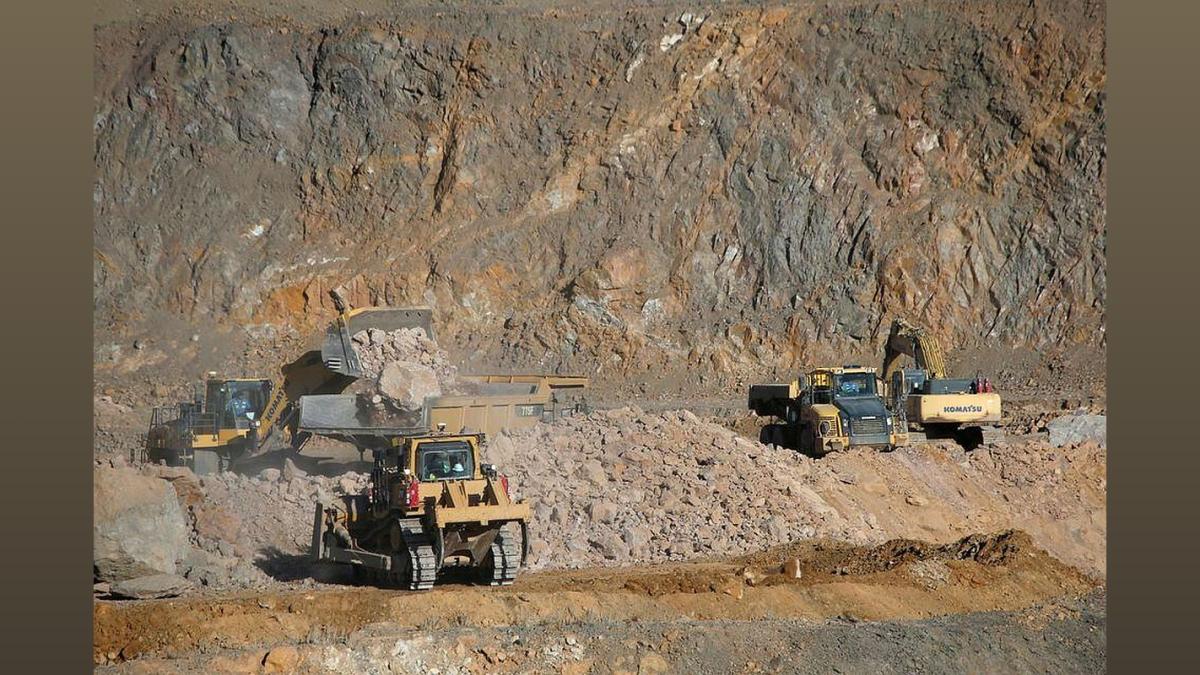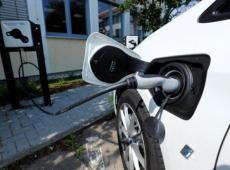Battery Recycling Risks: Underpriced System Threatens Sustainability
By Rediff Money Desk, New Delhi Oct 24, 2024 16:51
Experts warn of risks in India's battery recycling industry due to underpriced recycling system, leading to potential fraud and environmental hazards. A higher EPR floor price is crucial for sustainable battery recycling.

Photograph: Steve Marcus/Reuters
New Delhi, Oct 24 (PTI) Battery recycling industry is facing risks due to underpriced recycling system, which may lead to entry of fraudulent players and environmental disasters, experts said making a case of raising the threshold for achieving sustainable level of circular economy.
Some industry experts warn that the current pricing structure could cost India an estimated USD 1 billion in foreign exchange losses for import of critical minerals like lithium, cobalt, and nickel.
The issue gains importance as the country's reliance on cleaner alternative sources of energy is increasing day by day which makes the sustainable recycling of batteries a major prerequisite for clean energy.
The Material Recycling Association of India (MRAI) and experts thus suggest setting the EPR floor price for Lithium recycling at a higher rate to ensure sustainable, competitive, and standardized recycling.
"Extended Producer Responsibility (EPR) mandates that battery producers ensure safe recycling, yet low EPR floor prices hinder the collection and management of low-value or hard-to-recycle batteries. A higher EPR price is crucial for achieving sustainability and scale of battery recycling," MRAI said in a statement.
Additionally, it said, safe transport and pollution control measures are essential to mitigate risks and costs in battery recycling.
Incorporating a sufficient EPR price into the costs incurred by the producer will only increase the commodity's selling price by a small fraction, by around 0.6 per cent in the case of a Rs 4,000 power bank, it said.
Recently, the MRAI made a presentation to the Central Pollution Control Board (CPCB) requesting to revise the EPR floor price upwards. The government has been urged to set a fair EPR floor price and ensure implementation, transparency, and regular auditing to build a sustainable battery recycling industry.
CPCB could initiate a study on the economics of battery recycling based on various technologies and business models, and this study should inform the determination of the EPR floor price, Council on Energy, Environment and Water (CEEW) Programme Lead Akanksha Tyagi said.
While a higher floor price may be desirable for now to encourage new entrants and industry development, the prices should be revised periodically depending on improvements in technologies and increases in collection efficiencies, she said.
According to Prima Focus Technologies & Consulting Services Pvt Ltd founder R B Srivastava, low EPR floor price could encourage batteries not being collected and thus landing into the hands of the informal sector for resource recovery.
Some industry experts warn that the current pricing structure could cost India an estimated USD 1 billion in foreign exchange losses for import of critical minerals like lithium, cobalt, and nickel.
The issue gains importance as the country's reliance on cleaner alternative sources of energy is increasing day by day which makes the sustainable recycling of batteries a major prerequisite for clean energy.
The Material Recycling Association of India (MRAI) and experts thus suggest setting the EPR floor price for Lithium recycling at a higher rate to ensure sustainable, competitive, and standardized recycling.
"Extended Producer Responsibility (EPR) mandates that battery producers ensure safe recycling, yet low EPR floor prices hinder the collection and management of low-value or hard-to-recycle batteries. A higher EPR price is crucial for achieving sustainability and scale of battery recycling," MRAI said in a statement.
Additionally, it said, safe transport and pollution control measures are essential to mitigate risks and costs in battery recycling.
Incorporating a sufficient EPR price into the costs incurred by the producer will only increase the commodity's selling price by a small fraction, by around 0.6 per cent in the case of a Rs 4,000 power bank, it said.
Recently, the MRAI made a presentation to the Central Pollution Control Board (CPCB) requesting to revise the EPR floor price upwards. The government has been urged to set a fair EPR floor price and ensure implementation, transparency, and regular auditing to build a sustainable battery recycling industry.
CPCB could initiate a study on the economics of battery recycling based on various technologies and business models, and this study should inform the determination of the EPR floor price, Council on Energy, Environment and Water (CEEW) Programme Lead Akanksha Tyagi said.
While a higher floor price may be desirable for now to encourage new entrants and industry development, the prices should be revised periodically depending on improvements in technologies and increases in collection efficiencies, she said.
According to Prima Focus Technologies & Consulting Services Pvt Ltd founder R B Srivastava, low EPR floor price could encourage batteries not being collected and thus landing into the hands of the informal sector for resource recovery.
Source: PTI
Read More On:
DISCLAIMER - This article is from a syndicated feed. The original source is responsible for accuracy, views & content ownership. Views expressed may not reflect those of rediff.com India Limited.
You May Like To Read
TODAY'S MOST TRADED COMPANIES
- Company Name
- Price
- Volume
- Vodafone Idea L
- 8.29 ( -0.84)
- 38643247
- Srestha Finvest
- 0.63 (+ 5.00)
- 36611024
- Home First Finance
- 1,074.55 (+ 2.10)
- 22560337
- G G Engineering
- 1.85 ( -0.54)
- 20632419
- Ola Electric Mobilit
- 93.26 (+ 6.68)
- 14710812
MORE NEWS

FSSAI Reclassifies Packaged Water as High-Risk,...
The FSSAI has reclassified packaged drinking water as a high-risk food category,...

Sebi Bans 'Baap of Chart' & 6 Others for...
Sebi has banned 'Baap of Chart' and six others for one year for providing unregistered...

RBI Urges Banks to Reduce Inoperative Accounts
The RBI has directed banks to reduce inoperative accounts urgently, citing concerns...












 © 2024 Rediff.com India Limited. All rights reserved.
© 2024 Rediff.com India Limited. All rights reserved.